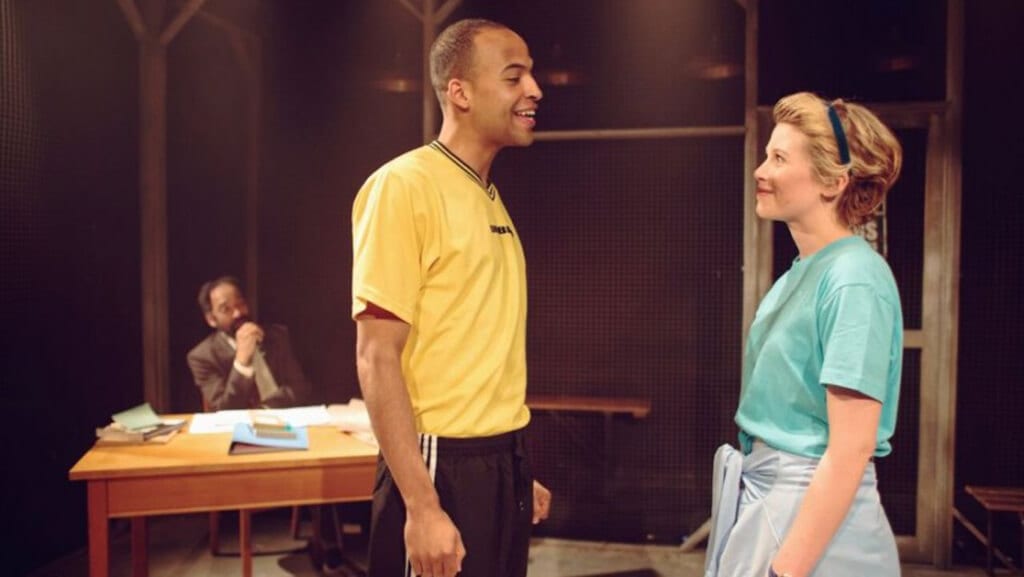It is a rare experience to leave the theatre feeling raw, real emotion; it is even rarer to have that sensation travel home with you, and stay with you long after the curtain has gone down. What My Children! My Africa! left me with was anger – bucket-loads of it – about a time that has now vanished, but all too recently. Tony Award winning playwright Athol Fugard’s stupendous play will knock you sideways and take your breath away.
Fugard’s play begins with a senior school debate in 1985, in a classroom in apartheid South Africa. An 18 year old, highly intelligent black boy called Thami (Nathan Ives-Moiba) is arguing with an equally intelligent young white girl of the same age, Isabel (Rose Reynolds). The topic: should women have access to the same rights and freedoms as men despite their differences? The supervisor: the brilliant Mr M (Anthony Ofoegbu). Despite the argument taking place in a Bantu School for black pupils, Isabel wins hands down, with the argument that prejudice is a poisonous disease that can soon spread elsewhere if one lets it. After seeing how well the two spar against one another, Mr M plans to make them join forces in the upcoming national debate competition, splitting the cash prize between their two schools – a powerful symbol of racial unity, despite the cruel, divisive government. However, the burgeoning friendship between Isabel and Thami, and the wise counsel of Mr M in their weekly sessions, is soon interrupted by the promise of violent unrest brewing in the black community. How long will the black people put up with social, intellectual and cultural oppression? Who are the real owners of Africa? The question then becomes this: what is the best weapon in the fight for freedom? Words, or force? Here, Mr M and his protégée Thami fundamentally disagree.
The snug, cramped setting of Trafalgar Studios 2 perfectly complimented the claustrophobic mood of the play itself. This theme of entrapment was carried forward in the set design by directors Mortimer and Edgington, a barbed wire fence standing between the actors and the audience, whilst before the play began, Reynolds was separated from Ives-Moiba and Ofoegbu on stage. She sat in one cage labelled “Whites Only,” whilst they sat in the “Blacks Only” area. All three eyeballed the audience, confronting us directly with the horrors of racist rule. This tense, nervous atmosphere was complimented by wonderfully nuanced writing, full of light and dark. Fugard’s piece was brimming with humour and poetry, and was intelligent and ambiguous. Whilst the play ends with a seemingly straight answer, it by no means only leads us down one path, Fugard himself describing it as a play about his “internal debate.” The acting was equally sublime – all three have been nominated for Off West End Awards for their performances. Nathan Ives-Moiba is utterly believable as the young man tempted by extremism (all too relevant in the world we are living in), whilst Rose Reynolds shines as the young woman filled with jolly hockey sticks optimism who ends the play with a far more balanced outlook on the country she is living in. But Ofoegbu is the heart and soul of the show with his emotional, conflicted performance as Mr M, a gifted teacher trying to stay faithful to his black community yet equally bound by his own duty to education.
This is not only the best play I have seen this year – it is, quite simply, one of the most powerful pieces of theatre I have seen in my life. A fundamentally important show, Fugard’s play is about the war between black and white, the war between prejudice and open-mindedness and another war altogether, between words and action. It is not to be missed.

